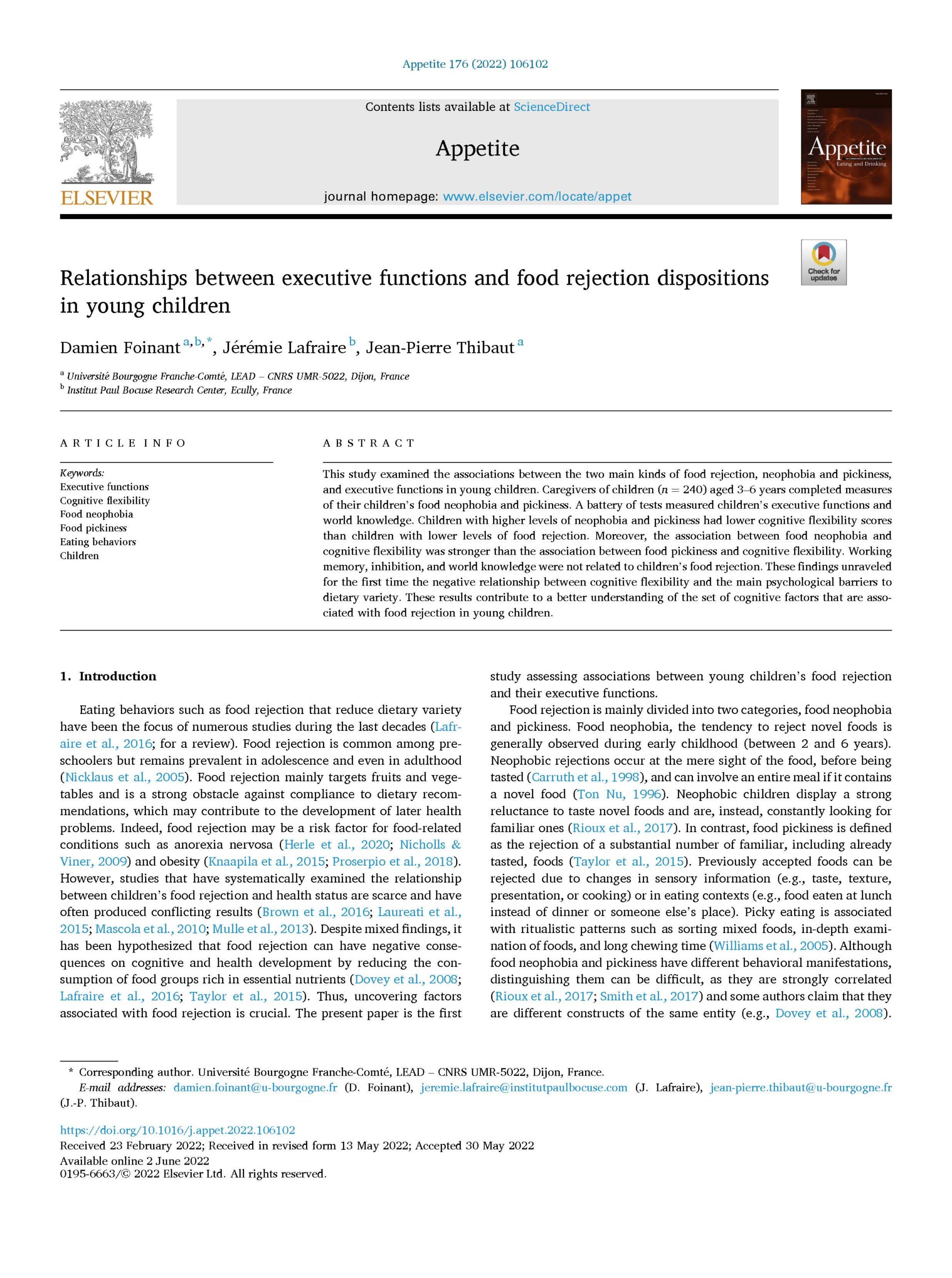This study examined the associations between the two main kinds of food rejection, neophobia and pickiness, and executive functions in young children. Caregivers of children (n = 240) aged 3-6 years completed measures of their children’s food neophobia and pickiness. A battery of tests measured children’s executive functions and world knowledge. Children with higher levels of neophobia and pickiness had lower cognitive flexibility scores than children with lower levels of food rejection. Moreover, the association between food neophobia and cognitive flexibility was stronger than the association between food pickiness and cognitive flexibility. Working memory, inhibition, and world knowledge were not related to children’s food rejection. These findings unraveled for the first time the negative relationship between cognitive flexibility and the main psychological barriers to dietary variety. These results contribute to a better understanding of the set of cognitive factors that are associated with food rejection in young children.
Relationships between executive functions and food rejection dispositions in young children
